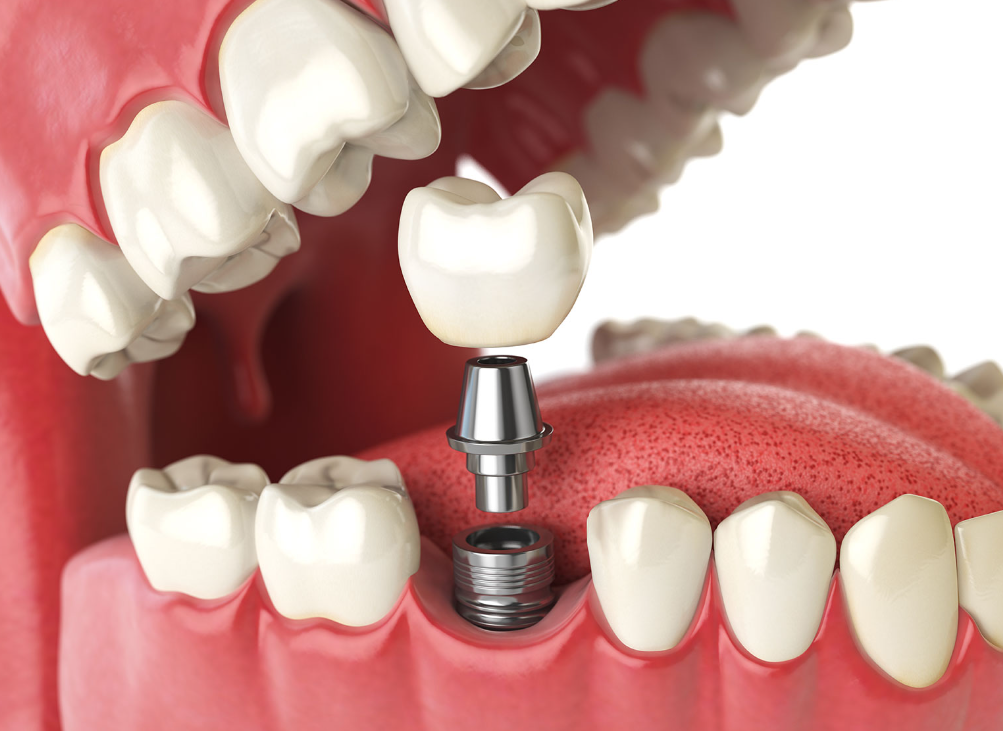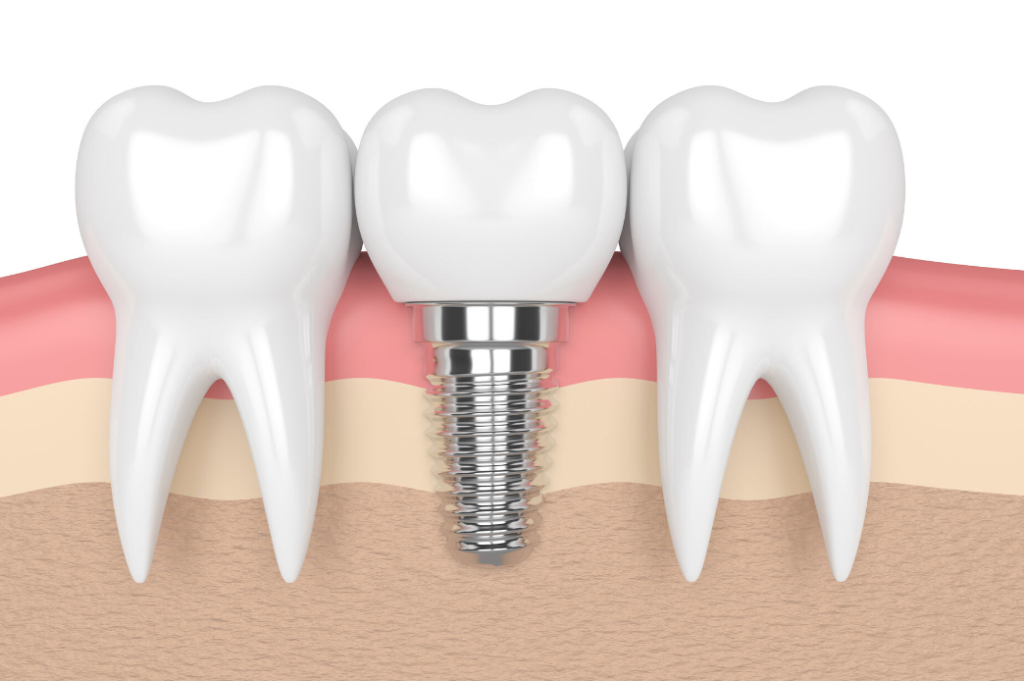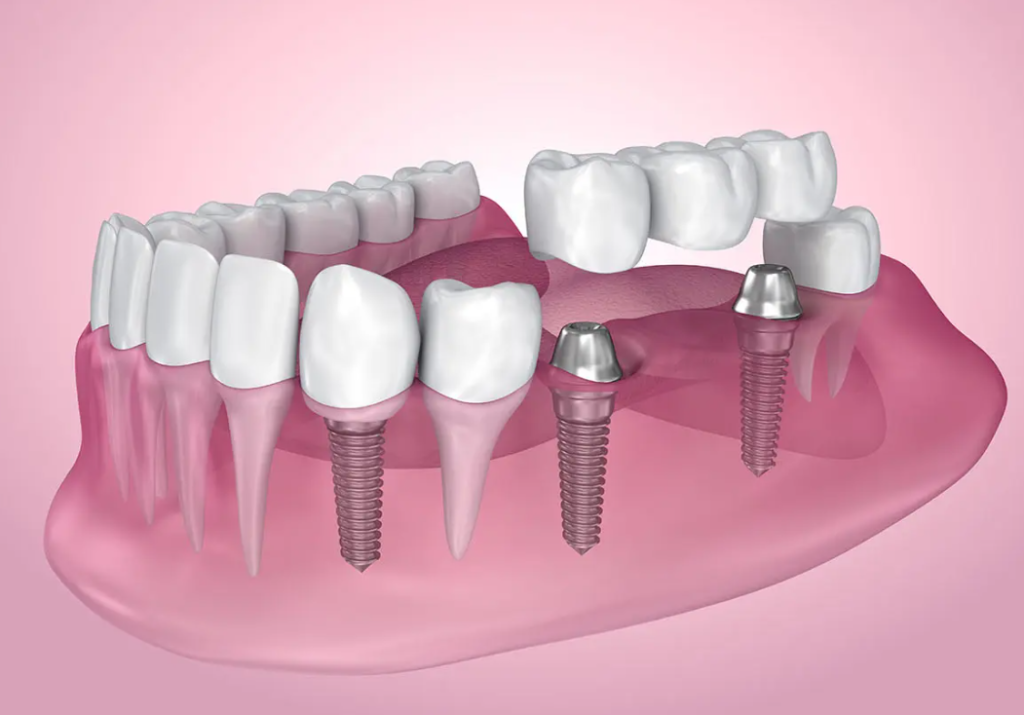
When considering dental implants, be mindful of potential risks that could arise.
These could range from minor inconveniences to more serious issues.
Fortunately, most complications are rare and usually heal or fuse to your jaw bone. If you have any queries about the procedure, consult your doctor to get a better idea of what can be expected.
1. Infection
Infections are unfortunately often seen during the postoperative period after dental implant surgery. This can occur for various reasons, such as inadequate sterilisation, inadequate oral hygiene and a history of gum disease.
In certain cases, it can lead to peri-implantitis or peri -implant mucositis (inflammation of the tissue surrounding an implant). While these infections usually don’t cause pain, they may cause bone loss and damage surrounding teeth and gums if not addressed promptly.
A dentist can often detect an infection early and provide treatment. This could include using a prescription-strength antimicrobial mouth rinse, antibiotics, surgery or special type of professional cleaning.
Preventing infection is simple; it involves practicing good oral hygiene, having regular checkups and eating a nutritious diet. Additionally, make sure you disclose any medical conditions or medications you are taking prior to surgery.
Before placing dental implants, it is essential to be aware of the sinuses and mandibular lingual space. Damage to these anatomical landmarks may lead to serious complications like intra- or postoperative bleeding, hematoma formation, as well as varying degrees of neurosensory alteration.
Dental implant surgery carries a potential risk of discomfort. To reduce the chances of infection or tissue loss at the implant site, patients should refrain from chewing hard foods or smoking cigarettes.
Reports have surfaced of several cases of accidental implant displacement into the bone marrow cavity of the mandible. Although this is an uncommon complication, it can cause intense pain and infection.

Infections that begin in the tooth crown can spread to the sinuses and lead to odontogenic sinusitis. When this happens, the infection may spread into the maxillary sinus, creating an abscess inside (Fig 5) or reaching into bone marrow cavities of the mandible (Fig 6).
Dental implant surgery is a popular solution for replacing missing teeth with artificial ones that look and function like natural teeth. However, as with any surgical procedure, there are certain risks involved. Some of the most common risks associated with dental implant surgery include infection, nerve damage, implant failure, and damage to surrounding teeth or structures. In addition, certain medical conditions such as diabetes or autoimmune disorders can increase the risk of complications during the implantation process. To minimize the risk of complications, it is essential to choose a reputable and experienced dentist or oral surgeon who will conduct a thorough evaluation of your oral health prior to the surgery. Following proper aftercare instructions is also crucial for successful healing and to avoid potential complications. Dental Implant Turkey is a leading provider of dental implant services in Turkey, offering advanced technology and highly skilled professionals to ensure safe and effective treatment.
2. Damage to the surrounding teeth and gums
Dental implant surgery is an invasive procedure that may lead to complications. These may include damage to the surrounding teeth and gums, delayed healing of bone, nerve damage, or jaw fractures.
Avoiding damage to surrounding teeth and gums during recovery can be minimized by abstaining from certain foods and drinking plenty of fluids. Furthermore, it’s recommended that you refrain from strenuous activity for at least 48 hours following surgery.
Before dental implant surgery, Navarro Family Clinic takes X-rays to confirm the implants are placed correctly and to identify any nerves within the mouth so as to protect them from damage.
The osseo-integration process (how a dental implant anchors to your jaw bone) is an intricate and time-consuming procedure that necessitates training and expertise. If not done correctly, your implant may fail to integrate properly with the bone, necessitating you to get a new tooth or crown instead.
3. Nerve damage

Nerves are made up of fibers called axons that send signals throughout your body. A nerve’s protective cover, known as myelin, shields these axons from pressure or stretching injuries.
Damage to axons in a nerve can produce numerous symptoms, from pain and numbness to weakness. Axons in nerves may also be damaged due to toxins or certain drugs.
Infectious diseases can have a major impact on your nerves. Examples include herpes, shingles and Lyme disease.
Genetic conditions can also wreak havoc on your peripheral nervous system. These are diseases you inherit from either one or both parents.
Implant surgery can also cause nerve damage, particularly when drilling too deeply into the lower jaw or when an implant fixture puts pressure on nearby nerves. Unfortunately, these types of nerve injuries are usually permanent.
